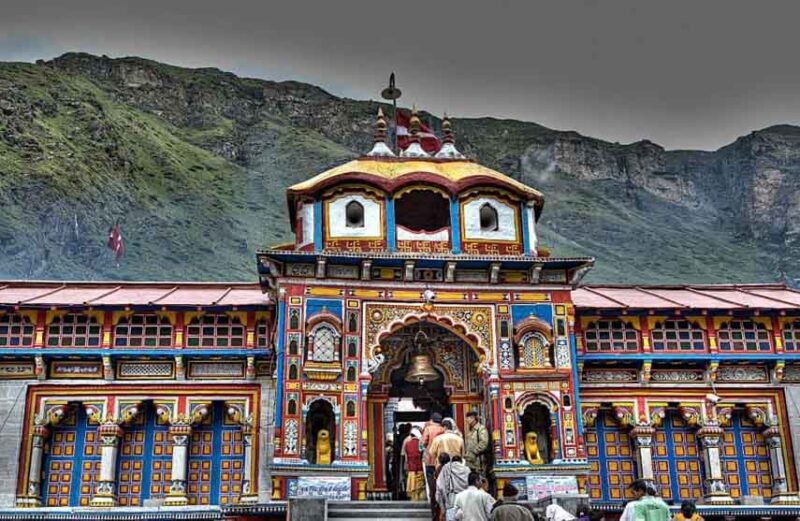Here’s a detailed guide for traveling to Badrinath Temple, including essential yatra information:
Travel Information
Best Time to Visit
- Opening Season: The temple usually opens in late April or early May and closes in November, around the onset of winter.
- Peak Season: May to June and September to October are the busiest months for pilgrims.
- Weather: Summers are mild and pleasant, while winters are harsh with heavy snowfall.
Getting There
- By Air:
- Nearest Airport: Jolly Grant Airport, Dehradun (approx. 315 km away).
- Regular flights connect Dehradun to major cities like Delhi and Mumbai.
- From the airport, you can hire a taxi or take a bus to Badrinath.
- By Train:
- Nearest Railway Station: Rishikesh (approx. 295 km away).
- Rishikesh is well-connected to major cities. From there, taxis or buses are available.
- By Road:
- Badrinath is accessible via motorable roads. Major routes include:
- Rishikesh to Badrinath (approx. 300 km)
- Joshimath to Badrinath (approx. 50 km)
- Buses and shared taxis operate from Rishikesh, Haridwar, and Joshimath.
- Badrinath is accessible via motorable roads. Major routes include:
Yatra Information
Yatra Preparation
- Permits: No special permits are required for Indian citizens. Foreigners should check visa regulations.
- Physical Fitness: A reasonable level of fitness is recommended, as some trekking may be involved.
Accommodations
- Types of Stay:
- Dharamshalas: Budget-friendly options are available near the temple.
- Hotels: Various hotels offer more comfortable accommodations.
- Booking: It’s advisable to book in advance, especially during peak season.
Pilgrimage Practices
- Puja and Rituals: Pilgrims typically take a holy dip in Tapt Kund before entering the temple. Offerings may include fruits, flowers, and other items.
- Guided Tours: Many local guides offer insights into rituals, history, and significance.
Local Transportation
- Local taxis and buses operate within Badrinath for convenience, but the town is quite walkable.
Essential Tips
- Dress Appropriately: Warm clothing is necessary, especially if visiting in colder months.
- Health Precautions: Carry necessary medications, as altitude sickness can be a concern.
- Stay Hydrated: Keep drinking water handy, especially during the trek.
- Respect Local Customs: Follow all temple guidelines and maintain decorum.
- Photography Restrictions: Photography is often restricted within the temple premises.
Nearby Attractions
- Mana Village: The last Indian village, known for its scenic beauty and cultural significance.
- Neelkanth Peak: Offers breathtaking views and trekking opportunities.
- Bhim Pul: A natural rock bridge near Mana, steeped in mythological significance.
Conclusion
Visiting Badrinath Temple is a spiritual journey that combines devotion, natural beauty, and cultural richness. Planning ahead and respecting the local customs will enhance your yatra experience.

